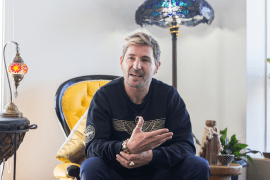Every time the two of us make that kind of connection, where he feels really understood and accepted, it builds trust to help the two of us to deal with his “difficulties” better.
Lastly, I said that in future I won’t tell his teachers about his difficulties at home unless a problem actually arises at school. I had mentioned the incident to his teacher in case the incomplete homework presented a problem at school. But her response made me aware of how different my approach is from the teacher’s. At home I use Connective principles and I believe they are the best way to help this Aspie child to learn to manage his difficulties, without thinking of himself as bad or defective. I know that his difficulties won’t be viewed and treated everywhere he goes in the world in the same way they are at home, and he will need to learn to negotiate that, but I believe the way we work with it at home is creating the best possible foundation for him to do that.
That’s because the core of the Connective Parenting approach is acceptance. I validate my son’s distress and his struggle. There is no negative judgement on him because he’s ‘behaving’ like this, nor do I take it personally, as a reflection on myself as a mother or an offense against me. My acceptance of him flows into self-acceptance, and self-acceptance, in my view, is the critical ingredient in my son’s journey. The ability to accept himself for who he is will be the solid platform from which he can learn to lead a successful and happy life despite the neural challenges he was born with. ~ Candice Trebilor, Australia
Our automatic triggers can get in the way of stopping ourselves from reacting in the moment. Sometimes it feels as though we have no control. This can signal deeper reasons of why we react the way we do. A mantra like, “disengage”, “wait for it to cool” – something that can be effective to get you to stop from reacting might help. Your intentions will come across far better to your child when you are calm.
Share some of the “mantras” or methods you have to stop yourself from reacting in the comments below.
Bonnie Harris is the director of Connective Parenting. She has been a parenting specialist for 30 years, is an international speaker, teacher and coach/counselor. Bonnie has written two books: “When Your Kids Push Your Buttons and What You Can Do About It” and “Confident Parents, Remarkable Kids: 8 Principles for Raising Kids You’ll Love to Live With“. Visit her website: www.bonnieharris.com and follow Connective Parenting on Facebook.










